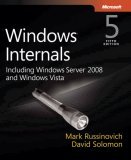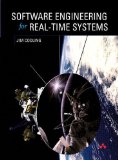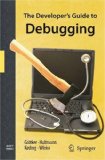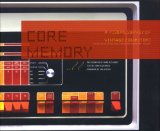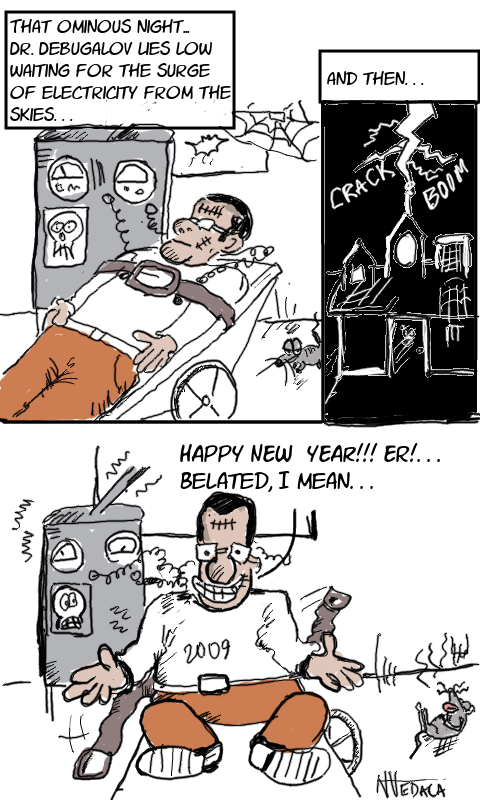 Multiple Exceptions (user mode) - Modeling Example
Multiple Exceptions (user mode) - Modeling Example Multiple Exceptions (kernel mode)
Multiple Exceptions (kernel mode) Multiple Exceptions (managed space)
Multiple Exceptions (managed space)- Multiple Exceptions (stowed)
 Dynamic Memory Corruption (process heap)
Dynamic Memory Corruption (process heap) Dynamic Memory Corruption (kernel pool)
Dynamic Memory Corruption (kernel pool)- Dynamic Memory Corruption (managed heap)
 False Positive Dump
False Positive Dump Lateral Damage (general)
Lateral Damage (general)- Lateral Damage (CPU mode)
 Optimized Code (function parameter reuse)
Optimized Code (function parameter reuse) Invalid Pointer (general)
Invalid Pointer (general)- Invalid Pointer (objects)
 NULL Pointer (code)
NULL Pointer (code) NULL Pointer (data)
NULL Pointer (data) Inconsistent Dump
Inconsistent Dump Hidden Exception (user space)
Hidden Exception (user space)- Hidden Exception (kernel space)
- Hidden Exception (managed space)
 Deadlock (critical sections)
Deadlock (critical sections) Deadlock (executive resources)
Deadlock (executive resources) Deadlock (mixed objects, user space)
Deadlock (mixed objects, user space) Deadlock (LPC)
Deadlock (LPC) Deadlock (mixed objects, kernel space)
Deadlock (mixed objects, kernel space) Deadlock (self)
Deadlock (self)- Deadlock (managed space)
- Deadlock (.NET Finalizer)
 Changed Environment
Changed Environment Incorrect Stack Trace
Incorrect Stack Trace OMAP Code Optimization
OMAP Code Optimization No Component Symbols
No Component Symbols Insufficient Memory (committed memory)
Insufficient Memory (committed memory) Insufficient Memory (handle leak)
Insufficient Memory (handle leak) Insufficient Memory (kernel pool)
Insufficient Memory (kernel pool) Insufficient Memory (PTE)
Insufficient Memory (PTE) Insufficient Memory (module fragmentation)
Insufficient Memory (module fragmentation) Insufficient Memory (physical memory)
Insufficient Memory (physical memory) Insufficient Memory (control blocks)
Insufficient Memory (control blocks)- Insufficient Memory (reserved virtual memory)
- Insufficient Memory (session pool)
- Insufficient Memory (stack trace database)
- Insufficient Memory (region)
- Insufficient Memory (stack)
 Spiking Thread
Spiking Thread Module Variety
Module Variety Stack Overflow (kernel mode)
Stack Overflow (kernel mode) Stack Overflow (user mode)
Stack Overflow (user mode) Stack Overflow (software implementation)
Stack Overflow (software implementation)- Stack Overflow (insufficient memory)
- Stack Overflow (managed space)
 Managed Code Exception
Managed Code Exception- Managed Code Exception (Scala)
- Managed Code Exception (Python)
 Truncated Dump
Truncated Dump Waiting Thread Time (kernel dumps)
Waiting Thread Time (kernel dumps) Waiting Thread Time (user dumps)
Waiting Thread Time (user dumps) Memory Leak (process heap) - Modeling Example
Memory Leak (process heap) - Modeling Example Memory Leak (.NET heap)
Memory Leak (.NET heap)- Memory Leak (page tables)
- Memory Leak (I/O completion packets)
- Memory Leak (regions)
 Missing Thread (user space)
Missing Thread (user space)- Missing Thread (kernel space)
 Unknown Component
Unknown Component Double Free (process heap)
Double Free (process heap) Double Free (kernel pool)
Double Free (kernel pool) Coincidental Symbolic Information
Coincidental Symbolic Information Stack Trace
Stack Trace- Stack Trace (I/O request)
- Stack Trace (file system filters)
- Stack Trace (database)
- Stack Trace (I/O devices)
 Virtualized Process (WOW64)
Virtualized Process (WOW64)- Virtualized Process (ARM64EC and CHPE)
 Stack Trace Collection (unmanaged space)
Stack Trace Collection (unmanaged space)- Stack Trace Collection (managed space)
- Stack Trace Collection (predicate)
- Stack Trace Collection (I/O requests)
- Stack Trace Collection (CPUs)
 Coupled Processes (strong)
Coupled Processes (strong) Coupled Processes (weak)
Coupled Processes (weak) Coupled Processes (semantics)
Coupled Processes (semantics) High Contention (executive resources)
High Contention (executive resources) High Contention (critical sections)
High Contention (critical sections) High Contention (processors)
High Contention (processors)- High Contention (.NET CLR monitors)
- High Contention (.NET heap)
- High Contention (sockets)
 Accidental Lock
Accidental Lock Passive Thread (user space)
Passive Thread (user space) Passive System Thread (kernel space)
Passive System Thread (kernel space) Main Thread
Main Thread Busy System
Busy System Historical Information
Historical Information Object Distribution Anomaly (IRP)
Object Distribution Anomaly (IRP)- Object Distribution Anomaly (.NET heap)
 Local Buffer Overflow (user space)
Local Buffer Overflow (user space)- Local Buffer Overflow (kernel space)
 Early Crash Dump
Early Crash Dump Hooked Functions (user space)
Hooked Functions (user space) Hooked Functions (kernel space)
Hooked Functions (kernel space)- Hooked Modules
 Custom Exception Handler (user space)
Custom Exception Handler (user space) Custom Exception Handler (kernel space)
Custom Exception Handler (kernel space) Special Stack Trace
Special Stack Trace Manual Dump (kernel)
Manual Dump (kernel) Manual Dump (process)
Manual Dump (process) Wait Chain (general)
Wait Chain (general) Wait Chain (critical sections)
Wait Chain (critical sections) Wait Chain (executive resources)
Wait Chain (executive resources) Wait Chain (thread objects)
Wait Chain (thread objects) Wait Chain (LPC/ALPC)
Wait Chain (LPC/ALPC) Wait Chain (process objects)
Wait Chain (process objects) Wait Chain (RPC)
Wait Chain (RPC) Wait Chain (window messaging)
Wait Chain (window messaging) Wait Chain (named pipes)
Wait Chain (named pipes)- Wait Chain (mutex objects)
- Wait Chain (pushlocks)
- Wait Chain (CLR monitors)
- Wait Chain (RTL_RESOURCE)
- Wait Chain (modules)
- Wait Chain (nonstandard synchronization)
- Wait Chain (C++11, condition variable)
- Wait Chain (SRW lock)
 Corrupt Dump
Corrupt Dump Dispatch Level Spin
Dispatch Level Spin No Process Dumps
No Process Dumps No System Dumps
No System Dumps Suspended Thread
Suspended Thread Special Process
Special Process Frame Pointer Omission
Frame Pointer Omission False Function Parameters
False Function Parameters Message Box
Message Box Self-Dump
Self-Dump Blocked Thread (software)
Blocked Thread (software) Blocked Thread (hardware)
Blocked Thread (hardware)- Blocked Thread (timeout)
 Zombie Processes
Zombie Processes Wild Pointer
Wild Pointer Wild Code
Wild Code Hardware Error
Hardware Error Handle Limit (GDI, kernel space)
Handle Limit (GDI, kernel space)- Handle Limit (GDI, user space)
 Missing Component (general)
Missing Component (general) Missing Component (static linking, user mode)
Missing Component (static linking, user mode) Execution Residue (unmanaged space, user)
Execution Residue (unmanaged space, user)- Execution Residue (unmanaged space, kernel)
- Execution Residue (managed space)
 Optimized VM Layout
Optimized VM Layout- Invalid Handle (general)
- Invalid Handle (managed space)
- Overaged System
- Thread Starvation (realtime priority)
- Thread Starvation (normal priority)
- Duplicated Module
- Not My Version (software)
- Not My Version (hardware)
- Data Contents Locality
- Nested Exceptions (unmanaged code)
- Nested Exceptions (managed code)
- Affine Thread
- Self-Diagnosis (user mode)
- Self-Diagnosis (kernel mode)
- Self-Diagnosis (registry)
- Inline Function Optimization (unmanaged code)
- Inline Function Optimization (managed code)
- Critical Section Corruption
- Lost Opportunity
- Young System
- Last Error Collection
- Hidden Module
- Data Alignment (page boundary)
- C++ Exception
- Divide by Zero (user mode)
- Divide by Zero (kernel mode)
- Swarm of Shared Locks
- Process Factory
- Paged Out Data
- Semantic Split
- Pass Through Function
- JIT Code (.NET)
- JIT Code (Java)
- Ubiquitous Component (user space)
- Ubiquitous Component (kernel space)
- Nested Offender
- Virtualized System
- Effect Component
- Well-Tested Function
- Mixed Exception
- Random Object
- Missing Process
- Platform-Specific Debugger
- Value Deviation (stack trace)
- Value Deviation (structure field)
- Runtime Thread (CLR)
- Runtime Thread (Python, Linux)
- Coincidental Frames
- Fault Context
- Hardware Activity
- Incorrect Symbolic Information
- Message Hooks - Modeling Example
- Coupled Machines
- Abridged Dump
- Exception Stack Trace
- Distributed Spike
- Instrumentation Information
- Template Module
- Invalid Exception Information
- Shared Buffer Overwrite
- Pervasive System
- Problem Exception Handler
- Same Vendor
- Crash Signature
- Blocked Queue (LPC/ALPC)
- Fat Process Dump
- Invalid Parameter (process heap)
- Invalid Parameter (runtime function)
- String Parameter
- Well-Tested Module
- Embedded Comment
- Hooking Level
- Blocking Module
- Dual Stack Trace
- Environment Hint
- Top Module
- Livelock
- Technology-Specific Subtrace (COM interface invocation)
- Technology-Specific Subtrace (dynamic memory)
- Technology-Specific Subtrace (JIT .NET code)
- Technology-Specific Subtrace (COM client call)
- Dialog Box
- Instrumentation Side Effect
- Semantic Structure (PID.TID)
- Directing Module
- Least Common Frame
- Truncated Stack Trace
- Data Correlation (function parameters)
- Data Correlation (CPU times)
- Module Hint
- Version-Specific Extension
- Cloud Environment
- No Data Types
- Managed Stack Trace
- Managed Stack Trace (Scala)
- Managed Stack Trace (Python)
- Coupled Modules
- Thread Age
- Unsynchronized Dumps
- Pleiades
- Quiet Dump
- Blocking File
- Problem Vocabulary
- Activation Context
- Stack Trace Set
- Double IRP Completion
- Caller-n-Callee
- Annotated Disassembly (JIT .NET code)
- Annotated Disassembly (unmanaged code)
- Handled Exception (user space)
- Handled Exception (.NET CLR)
- Handled Exception (kernel space)
- Duplicate Extension
- Special Thread (.NET CLR)
- Hidden Parameter
- FPU Exception
- Module Variable
- System Object
- Value References
- Debugger Bug
- Empty Stack Trace
- Problem Module
- Disconnected Network Adapter
- Network Packet Buildup
- Unrecognizable Symbolic Information
- Translated Exception
- Regular Data
- Late Crash Dump
- Blocked DPC
- Coincidental Error Code
- Punctuated Memory Leak
- No Current Thread
- Value Adding Process
- Activity Resonance
- Stored Exception
- Spike Interval
- Stack Trace Change
- Unloaded Module
- Deviant Module
- Paratext
- Incomplete Session
- Error Reporting Fault
- First Fault Stack Trace
- Frozen Process
- Disk Packet Buildup
- Hidden Process
- Active Thread (Mac OS X)
- Active Thread (Windows)
- Critical Stack Trace
- Handle Leak
- Module Collection
- Module Collection (predicate)
- Deviant Token
- Step Dumps
- Broken Link
- Debugger Omission
- Glued Stack Trace
- Reduced Symbolic Information
- Injected Symbols
- Distributed Wait Chain
- One-Thread Process
- Module Product Process
- Crash Signature Invariant
- Small Value
- Shared Structure
- Thread Cluster
- False Effective Address
- Screwbolt Wait Chain
- Design Value
- Hidden IRP
- Tampered Dump
- Memory Fluctuation (process heap)
- Last Object
- Rough Stack Trace (unmanaged space)
- Rough Stack Trace (managed space)
- Past Stack Trace
- Ghost Thread
- Dry Weight
- Exception Module
- Reference Leak
- Origin Module
- Hidden Call
- Corrupt Structure
- Software Exception
- Crashed Process
- Variable Subtrace
- User Space Evidence
- Internal Stack Trace
- Distributed Exception (managed code)
- Thread Poset
- Stack Trace Surface
- Hidden Stack Trace
- Evental Dumps
- Clone Dump
- Parameter Flow
- Critical Region
- Diachronic Module
- Constant Subtrace
- Not My Thread
- Window Hint
- Place Trace
- Stack Trace Signature
- Relative Memory Leak
- Quotient Stack Trace
- Module Stack Trace
- Foreign Module Frame
- Unified Stack Trace
- Mirror Dump Set
- Memory Fibration
- Aggregated Frames
- Frame Regularity
- Stack Trace Motif
- System Call
- Stack Trace Race
- Hyperdump
- Disassembly Ambiguity
- Exception Reporting Thread
- Active Space
- Subsystem Modules
- Region Profile
- Region Clusters
- Source Stack Trace
- Hidden Stack
- Interrupt Stack
- False Memory
- Frame Trace
- Pointer Cone
- Context Pointer
- Pointer Class
- False Frame
- Procedure Call Chain
- C++ Object
- COM Exception
- Structure Sheaf
- Saved Exception Context (.NET)
- Shared Thread
- Spiking Interrupts
- Structure Field Collection
- Black Box
- Rough Stack Trace Collection (unmanaged space)
- COM Object
- Shared Page
- Exception Collection
- Dereference Nearpoint
- Address Representations
- Near Exception
- Shadow Stack Trace
- Past Process
- Foreign Stack
- Annotated Stack Trace
- Disassembly Summary
- Region Summary
- Analysis Summary
- Region Spectrum
- Normalized Region
- Function Pointer
- Interrupt Stack Collection
- DPC Stack Collection
- Dump Context
- False Local Address
- Encoded Pointer
- Latent Structure
- ISA-Specific Code
Forthcoming Services
Memory Dump and Software Trace Analysis Training and Seminars
A problem has been detected and Windows has been shut down to prevent damage to your computerSaving a complete dump file...
*** Complete Debugging and Crash Analysis for Windows ***
The First Webinar: Fundamentals of Complete Crash and Hang Memory Dump Analysis
The presentation materials from the first webinar are available for download: http://www.dumpanalysis.com/FCMDA-materials
More forthcoming webinars
If you are interested in training please answer these questions (use this form http://www.dumpanalysis.org/contact):
- Are you interested in on-site training, prefer traveling or attending webinars?
- Are you interested in software trace analysis as well?
- What specific topics are you interested in?
- What training level (beginner, intermediate, advanced) are you interested in? (please provide an example, if possible)
Additional topics of expertise that can be integrated into training include Source Code Reading and Analysis, Debugging, Windows Architecture, Device Drivers, Troubleshooting Tools Design and Implementation, Multithreading, Deep Down C and C++, x86 and x64 Assembly Language Reading.
Forthcoming CDF and ETW Software Trace Analysis: Practical Foundations
Modern pattern-driven software trace analysis on Microsoft and Citrix platforms requires a practical guide and OpenTask plans to publish this summer the following book in both Practical Foundations and Systematic Software Fault Analysis series:
- Title: Citrix Common Diagnostic Facility (CDF) and Microsoft Event Tracing for Windows (ETW) Software Trace Analysis: Practical Foundations
- Author: Dmitry Vostokov
- Publisher: Opentask (August 2010)
- Language: English
- Product Dimensions: 22.86 x 15.24
- ISBN: 1906717176
- ISBN-13: 978-1906717179
- Paperback: 200 pages
Forthcoming Crash Dump Analysis: Practical Foundations (Windows Edition, Systematic Software Fault Analysis Series)
This is the first book from Windows Crash Dump Analysis tetralogy. It introduces basic definitions, tools, memory dump collection and preliminary analysis methods for Windows platforms including legacy versions. This practical guide and reference book is a must have for system administrators of Windows server platforms and client workstations, technical support engineers and general Windows users. It builds foundation for the second tetralogy book Crash Dump Analysis for System Administrators and Support Engineers and the remaining tetralogy books Windows Crash Dump Analysis and Advanced Windows Crash Dump Analysis.
- Title: Crash Dump Analysis: Practical Foundations (Windows Edition, Systematic Software Fault Analysis Series)
- Authors: Dmitry Vostokov
- Publisher: Opentask (May 2010)
- Language: English
- Product Dimensions: 22.86 x 15.24
- ISBN-13: 978-1-906717-98-8
- Paperback: 100 pages
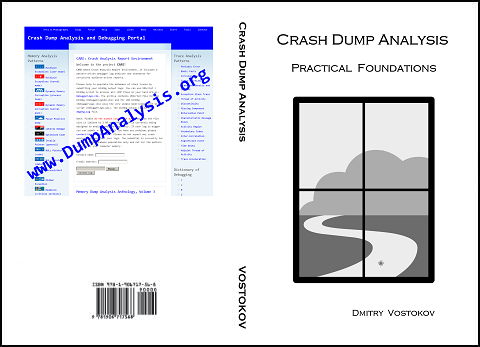
Build your own Event Data Recorder for your Software
Create a black box inside your software to solve problems on their first occurrence. Don’t be with incomplete data at the time of your (software) crashes.
Read about solving problems on their FIRST occurrence while emphasizing software supportability and serviceability:
Plans for The Year of Dump Analysis
Release the first beta version of EasyDbg
Release the first beta version of CARE (Crash Analysis Report Environment) for a pattern-driven debugger log analyzer with standards for structured audience-driven reports
Release the first beta version of STARE (Software Trace Analysis Report Environment) for a pattern-driven software trace analyzer with corresponding standards for structured audience-driven reports
Publish the following books on dump analysis that address different audiences (general users, system administrators, support and escalation engineers, testers, software engineers, security and software defect researchers):
- Windows Debugging Notebook
- Crash Dump Analysis for System Administrators and Support Engineers
- Memory Dump Analysis Anthology, Volume 4
- Memory Dump Analysis Anthology, Volume 5
- Memory Dump Analysis Anthology Color Supplement
- Principles of Memory Dump Analysis
- My Computer Crashes and Freezes: A Non-technical Guide to Software and Hardware Errors
- Linux, FreeBSD and Mac OS X Debugging: Practical Foundations
- Encyclopedia of Crash Dump Analysis Patterns
- WinDbg In Use: Debugging Exercises
Publish articles related to memory dump analysis in Debugged! magazine
Update WinDbg Poster and Cards
The Year of Debugging in Retrospection
The Year of Debugging, 0x7D9, was a remarkable year for DumpAnalysis.org. Here is the list of achievements to report:
- Software Trace Analysis as a new discipline with its own set of patterns
- Unification of Memory Dump Analysis with Software Trace Analysis (DA+TA)
- New computer memory dump-based art movements: Opcodism and Physicalist Art
- Discovery of 3D computer memory visualization techniques
- Establishing Software Maintenance Institute
- Broadening software fault injection as Software Defect Construction discipline
- Establishing a new profession of a Software Defect Researcher
- Starting ambitious Dictionary of Debugging
- Publishing Windows Debugging: Practical Foundations book
- Publishing the first x86-free Windows debugging book: x64 Windows Debugging: Practical Foundations
- Establishing the new debugging magazine: Debugged! MZ/PE
- Publishing Memory Dump Analysis Anthology, Volume 3
- Cooperation with OpenTask to promote First Fault Software Problem Solving book
- Establishing Debugging Expert(s) Magazine Online
- Creating the first development process for debugging and software troubleshooting tools: RADII
- Publishing the first pattern-driven memory dump analysis troubleshooting methodology as a foundation for software debugging
- Proposal for an International Memory Analysts and Debuggers Day
- Almost completed Windows Debugging Notebook to be published soon
- The founder of DumpAnalysis.org (Dr. DebugLove) becomes a member of Citrix Systems Tweetrix Support Team
DumpAnalysis.org Wishes Happy New Year 7DA!
2010 (7DA) is The Year of Dump Analysis!
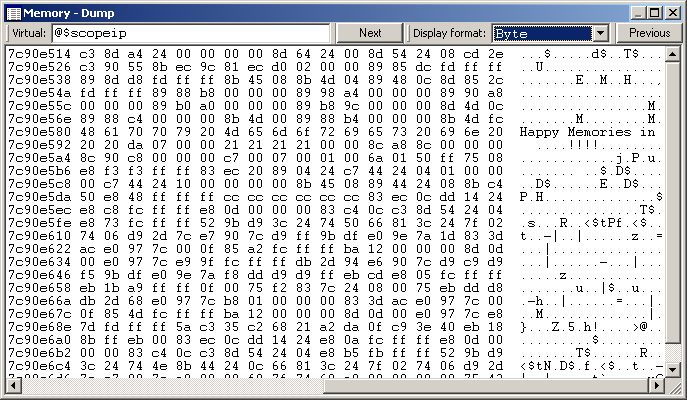
Try to find 2010 in the corrupt code after committing the greeting to memory:
0:000> u eip
ntdll!KiFastSystemCallRet:
7c90e514 c3 ret
7c90e515 8da42400000000 lea esp,[esp]
7c90e51c 8d642400 lea esp,[esp]
ntdll!KiIntSystemCall:
7c90e520 8d542408 lea edx,[esp+8]
7c90e524 cd2e int 2Eh
7c90e526 c3 ret
7c90e527 90 nop
ntdll!RtlRaiseException:
7c90e528 55 push ebp
0:000> u
ntdll!RtlRaiseException+0x1:
7c90e529 8bec mov ebp,esp
7c90e52b 9c pushfd
7c90e52c 81ecd0020000 sub esp,2D0h
7c90e532 8985dcfdffff mov dword ptr [ebp-224h],eax
7c90e538 898dd8fdffff mov dword ptr [ebp-228h],ecx
7c90e53e 8b4508 mov eax,dword ptr [ebp+8]
7c90e541 8b4d04 mov ecx,dword ptr [ebp+4]
7c90e544 89480c mov dword ptr [eax+0Ch],ecx
0:000> u
ntdll!RtlRaiseException+0x1f:
7c90e547 8d852cfdffff lea eax,[ebp-2D4h]
7c90e54d 8988b8000000 mov dword ptr [eax+0B8h],ecx
7c90e553 8998a4000000 mov dword ptr [eax+0A4h],ebx
7c90e559 8990a8000000 mov dword ptr [eax+0A8h],edx
7c90e55f 89b0a0000000 mov dword ptr [eax+0A0h],esi
7c90e565 89b89c000000 mov dword ptr [eax+9Ch],edi
7c90e56b 8d4d0c lea ecx,[ebp+0Ch]
7c90e56e 8988c4000000 mov dword ptr [eax+0C4h],ecx
0:000> u
ntdll!RtlRaiseException+0x4c:
7c90e574 8b4d00 mov ecx,dword ptr [ebp]
7c90e577 8988b4000000 mov dword ptr [eax+0B4h],ecx
7c90e57d 8b4dfc mov ecx,dword ptr [ebp-4]
7c90e580 48 dec eax
7c90e581 61 popad
7c90e582 7070 jo ntdll!_CIcos+0xe (7c90e5f4)
7c90e584 7920 jns ntdll!RtlRaiseException+0x7e (7c90e5a6)
7c90e586 4d dec ebp
0:000> u
ntdll!RtlRaiseException+0x5f:
7c90e587 656d ins dword ptr es:[edi],dx
7c90e589 6f outs dx,dword ptr [esi]
7c90e58a 7269 jb ntdll!_CIcos+0xf (7c90e5f5)
7c90e58c 657320 jae ntdll!RtlRaiseException+0x87 (7c90e5af)
7c90e58f 696e202020da07 imul ebp,dword ptr [esi+20h],7DA2020h
7c90e596 0000 add byte ptr [eax],al
7c90e598 2121 and dword ptr [ecx],esp
7c90e59a 2121 and dword ptr [ecx],esp
0:000> u
ntdll!RtlRaiseException+0x74:
7c90e59c 0000 add byte ptr [eax],al
7c90e59e 8ca88c000000 mov word ptr [eax+8Ch],gs
7c90e5a4 8c90c8000000 mov word ptr [eax+0C8h],ss
7c90e5aa c70007000100 mov dword ptr [eax],10007h
7c90e5b0 6a01 push 1
7c90e5b2 50 push eax
7c90e5b3 ff7508 push dword ptr [ebp+8]
7c90e5b6 e8f3f3ffff call ntdll!NtRaiseException (7c90d9ae)
Advanced .NET Debugging
Tue, 12/08/2009 - 11:28 — Dmitry Vostokov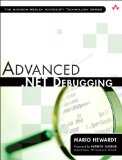
I've just started reading this book (see my notes on Software Generalist blog) and this review is written from the perspective of an unmanaged and native software engineer (the last phrase sounds funny). Being a member of a software support of a large software company I analyze crash dumps that have mscorwks.dll on their stack traces. So if you see them too this book helps you to understand what this DLL is all about and how to dig inside the hidden world of .NET it manages. I'm on page 26 and will update this review as soon as I finish the book in a few months. Please also see my review of the previous Mario's (co-authored with Daniel Pravat) book: Advanced Windows Debugging. It is of great importance to know .NET world for Windows maintenance engineers and I originally planned a similar book Unmanaged Code: Escaping the Matrix of .NET but didn't have time to finish it yet.
Update: my book review submitted to slashdot: http://slashdot.org/~DumpAnalysis/
Gigabyte
We plan to open 2010 (7DA), The Year of Dump Analysis, with the publication of a gigabyte.
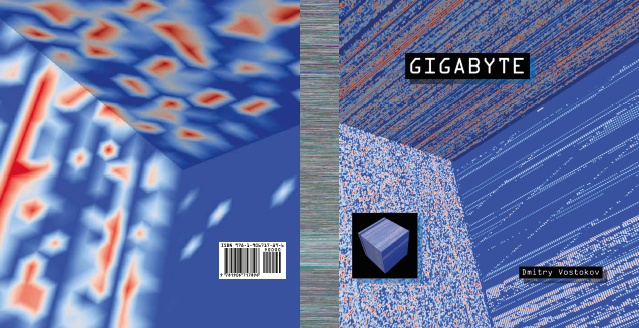
Product information is:
- Title: Gigabyte
- Author: Dmitry Vostokov
- Language: English
- Product Dimensions: 21.6 x 21.6
- Paperback: 80 pages
- Publisher: Opentask (01 Jan 2010)
- ISBN-13: 978-1-906717-89-6
A New Profession of Software Defect Research
By analogy with a security researcher profession, DumpAnalysis.org, Memory Analysis and Debugging Institute and Software Maintenance Institute propose the new title of a software defect researcher as a unified profession combining relevant fields of security research, testing, debugging, memory dump analysis, software reverse engineering, construction and maintenance.
Interview Crashes and Hangs
As a dual to Resume and CV: As a Book OpenTask plans to publish the long time memories of the founder of DumpAnalysis.org in the following book next year:
My Failed Job Interviews: Reflections on 50 Percent (ISBN: 978-1906717889)
The recollections span East and West, small and giant software companies, full time and part time, office and remote job positions, direct and recruitment company hiring, phone and on-site, technical and business interviews.
Software Maintenance Institute
Memory Analysis and Debugging Institute (MA&DI), DA+TA Portal (DumpAnalysis.org + TraceAnalysis.org) and OpenTask establish R&D Institute of Software Maintenance:
Software Maintenance Institute (SMInstitute.com)
Hardware Reviews
DumpAnalysis.org accepts hardware such as laptops for reviewing in relation to their suitability for extreme debugging, virtualization, trace analysis, computer forensics, memory dump analysis, visualization and auralization. If you work for a H/W company like HP, Apple, Dell, Acer, Sony or any other respectable manufacturer please don't hesitate to forward this post to your management: it could be your company brand or laptop model that debugging and software technical support community chooses next time of upgrade or for T&D / R&D! H/W reviews will be posted on the main portal page which currently has an audience of more than 330,000 unique visitors per year from more than 45,000 network locations (*).
If your company is interested please don't hesitate to use this contact form:
http://www.dumpanalysis.org/contact
(*) From Google Analytics report.
Crash Dump Analysis for System Administrators and Support Engineers (Systematic Software Fault Analysis Series)
This is a must have book for system administrators of complex Windows server platforms and client workstations to understand and choose the best course of action to address system and application crashes, hangs, CPU spikes and memory leaks. It is also invaluable to general Windows users and technical support engineers.
- Title: Crash Dump Analysis for System Administrators and Support Engineers (Windows Edition, Systematic Software Fault Analysis Series)
- Authors: Thomas Monahan, Dmitry Vostokov
- Publisher: Opentask (30 November 2009)
- Language: English
- Product Dimensions: 22.86 x 15.24
- ISBN-13: 978-1-906717-02-5
- Paperback: 180 pages
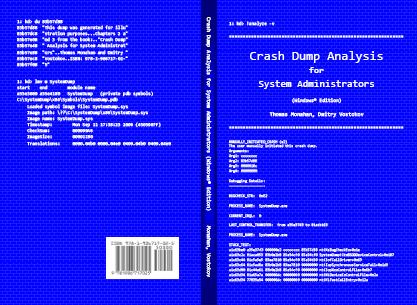
This book has been superseded by the second edition:
Crash and Hang Analysis: A Guide for System Administrators, DevOps, and Support Engineers (Windows Edition) (ISBN: 978-1908043917)
Debugging Expert Magazine Online
The free online version of Debugged! MZ/PE magazine:
www.DebuggingExpert.com
Windows® Internals: Including Windows Server 2008 and Windows Vista, Fifth Edition
Tue, 07/07/2009 - 02:07 — Dmitry VostokovThe book shows the big picture of Windows architecture and collaboration of various system components. Contains various examples of WinDbg commands for exploring OS internals and even has a short chapter on crash dump analysis. However you need to read device driver books to fill the gaps and be confident in kernel space. Highly recommended for Win32 and kernel developers, maintenance software engineers and technical support.
DATA (Dump Analysis + Trace Analysis) Facebook Group
Please join the community of memory (dump) and trace analysis engineers. This group promotes scientific methods and memory dump-based world view.
DATA (Dump Analysis + Trace Analysis) Facebook group
Software Engineering for Real-Time Systems
Thu, 06/04/2009 - 22:22 — Dmitry VostokovSometimes I'm asked about a broad software engineering book to recommend for general memory dump analysis that covers software architecture, design methods and diagramming languages like UML, programming languages, concurrency, real-time issues and many other topics you need to know to have systems understanding that helps in problem identification and debugging. Here's the book that I was fortunate to buy 4-5 years ago in a book shop and is a sheer pleasure to read:
Software Engineering for Real-Time Systems
There even exists an OMG certification based on it:
Memory Dump Analysis Certification
Memory Analysis and Debugging Institute develops x86/x64-based certification tracks for Windows and Unix (including Linux / FreeBSD / Mac OS X).
Each track consists of 3 exams, each having its own set of requirements and scope:
- Fundamentals of Memory Dump Analysis
- Intermediate Memory Dump Analysis
- Advanced Memory Dump Analysis
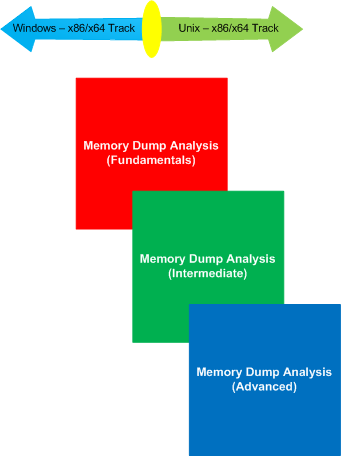
The initiative is supported by OpenTask.
Programming Language Pragmatics, Third Edition
Fri, 05/08/2009 - 11:20 — Dmitry Vostokov
Every debugging engineer needs to know how the code is interpreted or compiled. Debugging complex problems or doing memory analysis on general-purpose operating systems often requires understanding the syntax and semantics of several programming languages and their run-time support. The knowledge of optimization techniques is also important for low-level debugging when the source code is not available. The following book provides an overview of all important concepts and discusses almost 50 languages. I read the first edition 6 years ago and I liked it so much that I'm now reading the third edition from cover to cover.
The Developer's Guide to Debugging
Fri, 04/24/2009 - 15:17 — Dmitry VostokovI finally read this book from cover to cover and I must say it is the very sound book and presents a consistent approach to debugging real-life problems with user-land C and C++ code on Linux environments.
The Developer's Guide to Debugging
Although it uses mainly GDB for illustrations and provides Visual C++ equivalents when possible it doesn't cover Debugging Tools for Windows and its main GUI debugger, WinDbg.
Additional reader audience for this book might include a Windows engineer who needs to debug software on Linux or FreeBSD so a quick GDB crash course is needed. It would also serve as an excellent debugging course or as a supplemental course to any C or C++ course. Highly recommended if you are a Linux C/C++ software engineer. Even if you are an experienced one, you will find something new or make your debugging more consistent. If you need to teach or mentor juniors, this book helps too.
The Debugging Decade!
DumpAnalysis.org announces forthcoming 2011 - 2020 as
2011 (0x7DB) - 2020 (0x7E4) The Debugging Decade
OpenTask Announces Restructuring
OpenTask, the publisher of memory dump analysis and debugging books, announces restructuring:
The Year of Dump Analysis!
DumpAnalysis.org announces forthcoming 2010 as
2010 (0x7DA) - The Year of Dump Analysis
Forthcoming Computer Memory Visualization Book
This is a full color book about postmortem, static and dynamic memory visualization and its current and emerging applications:
- Authors: Jamie Fenton, Dmitry Vostokov
- Paperback: 64 pages
- ISBN-13: 978-1-906717-06-3
- Publisher: Opentask (2010)
- Language: English
- Product Dimensions: 28 x 21.6
Book cover features a journey to the center of pagefile theme and the discovery of cosmic rays in memory:
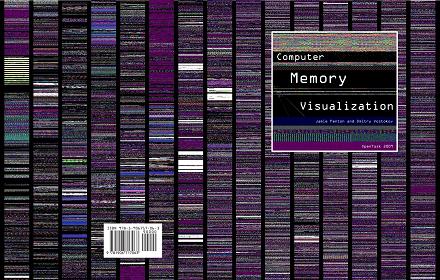
Core Memory: A Visual Survey of Vintage Computers
Wed, 01/07/2009 - 12:54 — Dmitry VostokovWhile working on "Computer Memory Visualization" book I noticed this recent title and immediately bought it:
This is not only a wonderful hardcover coffee table book with stunning photographs of old computers and their memory hardware but also has numerous historical notes. It nicely complements my own DLL List Landscape: The Art from Computer Memory Space book that features virtual memory visual images.
Memory Analysis and Debugging Institute
DumpAnalysis.org jointly with OpenTask establishes Memory Analysis & Debugging Institute (MA&DI)
